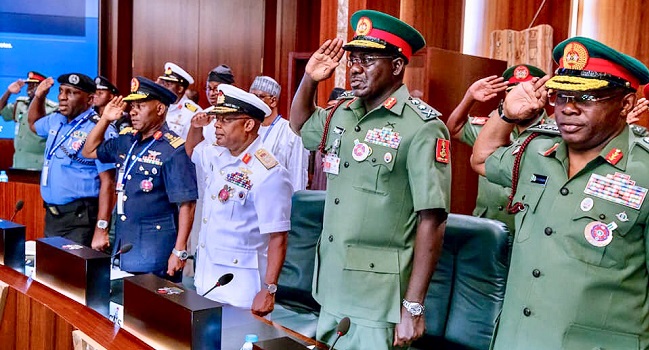It remains to be seen how much can be done in securing churches in Nigeria especially as it increasingly appears that those who should secure Nigerians have themselves become as endangered as those they should secure.

In Nigeria, a favourite tactic of those who shape and sell cynicism and skepticism to the gullible, the naïve and the impressionable is to make religion, particularly the Christian religion, a soft target of their often well-founded but misplaced criticisms of the root causes of the problems plaguing the country.

Most times, Islam which is Nigeria`s other dominant religion is spared the criticisms. This no doubt has a lot to do with the inherent volatility of many of those who practice it and the fact that there are many who pose as its teachers but in effect create human volcanos that bide their time to erupt at the slightest provocation.
An opium of the people
The true extent of the distance religion often covers in shaping people and their realities is often debatable and hotly debated. However, one thing that the debate has been unable to becloud is the fact that religion holds a strong sway over those who practice it. Many of those who practice religion use their belief in the existence and presence of the invisible and invincible as some sort of analgesic for the pain they feel from that which they can see and feel.
Thus, it is not uncommon to see people explain away events or deliberately refuse to act because they repose unwavering belief that somehow everything has been taken or will be taken care of by some unseen force.
In precisely the space where Nigeria is a deeply religious country, it is also a deeply divided one. That these divisions dip along religious lines would serve to further shove religion into an uncomfortable spotlight.
Ruthless and relentless attacks.
On July 5, 2022, gunmen broke into the home of Reverend David Umaru of the Church of the Brethren in Njiari, Mubi Local Government Area of Adamawa State.They shot him multiple times, shot his two sons dead, abducted his thirteen-year-old daughter and left his wife deeply traumatized. It is unimaginable the amount of pain families have had to endure due to the activities of criminals who are determined to overrun Nigeria.
One does not even need to wail more than the bereaved to note the deeply worrying level of attacks on churches in Nigeria, their congregations and those who shepherd them. While Kaduna has since become the graveyard of clerics and Christians alike, Kogi, Edo, Benue and Zamfara State continue to offer the stiff competition for that ignominious spot. For the church in Kaduna State especially, the constancy and ferocity of the attacks is simply numbing.
A litany of lethal attacks
It is not to wail more than the bereaved. The numbers back it up.
On April 24, 2018 suspected herdsmen stormed St. Ignatius Catholic Church, Ukpor- Mbalom Parish, Gwer East Local Government Area of Benue State, killing two catholic priests and 17 parishioners.
In November 2021, despite collecting ransom, bandits killed Rev. Dauda Bature, a pastor with the Evangelical Church of Winning All,Nariya, Kaduna State. In September 2021, Silas Yakubu Ali, a pastor with the Evangelical Church Winning All(ECWA)in Kibori- Asha Awuce in Zangon Kataf LGA of Kaduna State, was killed by suspected hoodlums.
On Saturday June 25, 2022, Fr. Vitus Borogo, a priest of the Catholic Archdiocese of Kaduna was gunned down at the Prison Farm, Kujama, along Kaduna-Kachia Road after a raid on the farm.The next day, in Uzairue, Edo State, another catholic priest, Fr. Christopher Odia, was gunned down after he was abducted.
Soft targets.
Given that churches are found practically everywhere in the country and are usually without any form of specialized defences, what affects their immediate communities affect them too. It explains the fact that Christians and those who shepherd them remain vulnerable to these attacks.
It remains to be seen how much can be done in securing churches in Nigeria especially as it increasingly appears that those who should secure Nigerians have themselves become as endangered as those they should secure.
Kene Obiezu,
keneobiezu@gmail.com



















